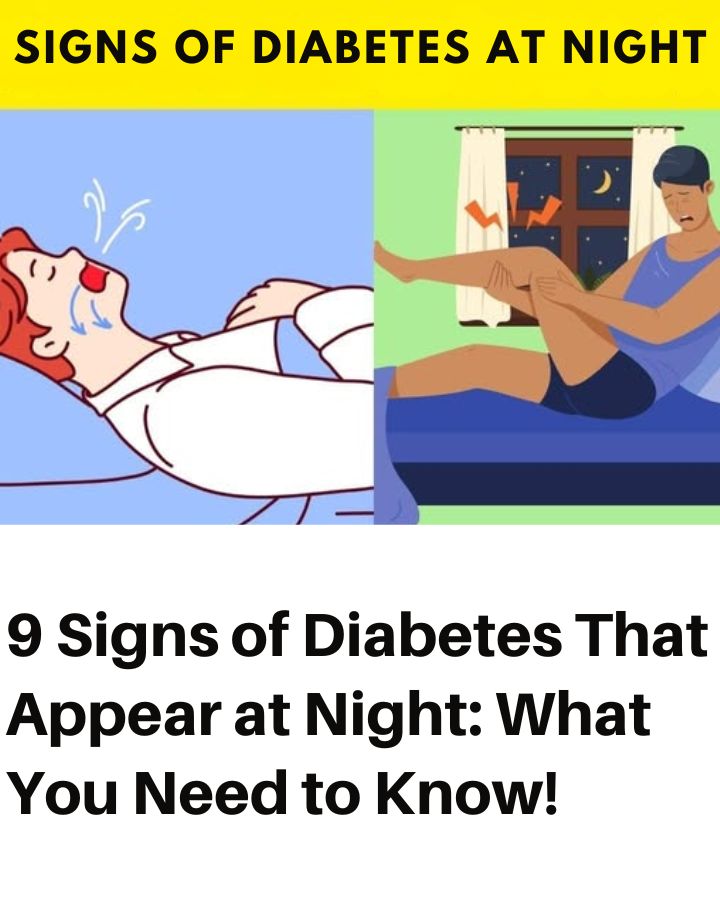Recognizing the nocturnal symptoms of diabetes is crucial for early detection and effective management of this prevalent health condition. The following are nine signs that may manifest during the night:

-
Frequent Urination (Nocturia): An early indicator of diabetes is the need to urinate frequently during the night. Elevated blood sugar levels compel the kidneys to work harder to eliminate excess glucose, leading to increased urine production. This can disrupt sleep and cause dehydration, prompting further thirst and urination cycles.
-
Night Sweats: Experiencing excessive sweating during sleep can be a symptom of nocturnal hypoglycemia, where blood sugar levels drop too low overnight. This condition often results from an imbalance between diabetes medications and food intake.
-
Hypoglycemia Symptoms: Low blood sugar levels at night can trigger symptoms such as trembling, increased hunger, mental confusion, blurred vision, and heart palpitations. These signs indicate the body’s struggle to maintain adequate glucose levels during rest.
-
Restless Legs Syndrome (RLS): RLS is characterized by an uncontrollable urge to move the legs, often accompanied by uncomfortable sensations. Diabetes-related nerve damage, or peripheral neuropathy, can contribute to this condition, leading to sleep disturbances.
-
Sleep Apnea: This sleep disorder involves repeated interruptions in breathing during sleep and is more prevalent among individuals with diabetes. Factors such as obesity and insulin resistance can exacerbate the risk of developing sleep apnea.
-
Increased Thirst (Polydipsia): Waking up with a dry mouth and an unquenchable thirst can signal high blood sugar levels. As the body loses fluids through frequent urination, it triggers increased thirst to rehydrate.
-
Fatigue: Despite adequate sleep, persistent fatigue may occur due to the body’s inability to utilize glucose effectively for energy. This inefficiency can leave individuals feeling exhausted throughout the day and night.
-
Dry Mouth: High blood sugar levels can reduce saliva production, leading to a dry mouth. This condition can cause discomfort and increase the risk of oral health issues.
-
Sleep Disorders: Diabetes can cause fluctuations in blood sugar levels, leading to sleep disturbances such as insomnia. Both hypoglycemia and hyperglycemia can disrupt sleep patterns, making it challenging to achieve restful sleep.
Understanding these nocturnal symptoms is vital for early detection and management of diabetes. If you experience any of these signs, consult a healthcare professional for proper evaluation and guidance.
For a visual overview of these nighttime signs of diabetes, you can watch the following video





